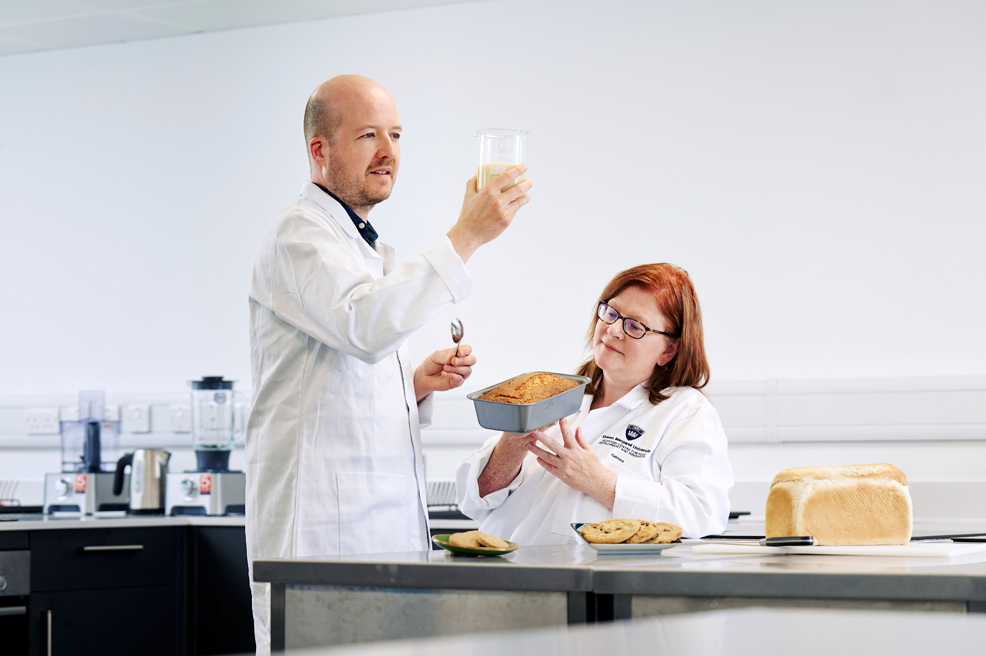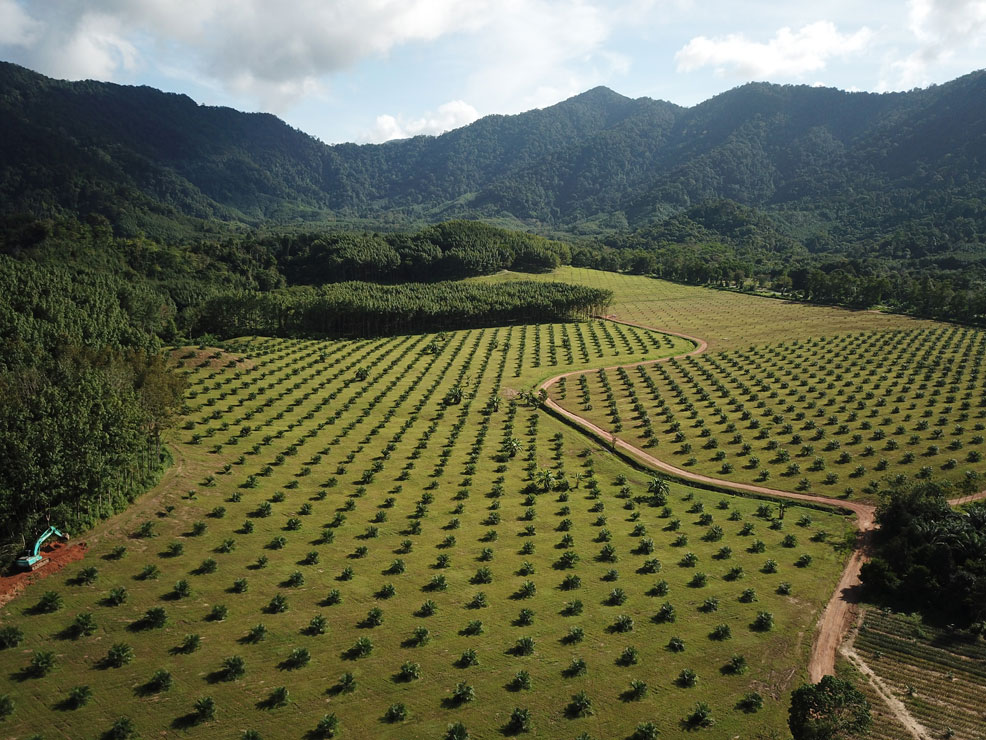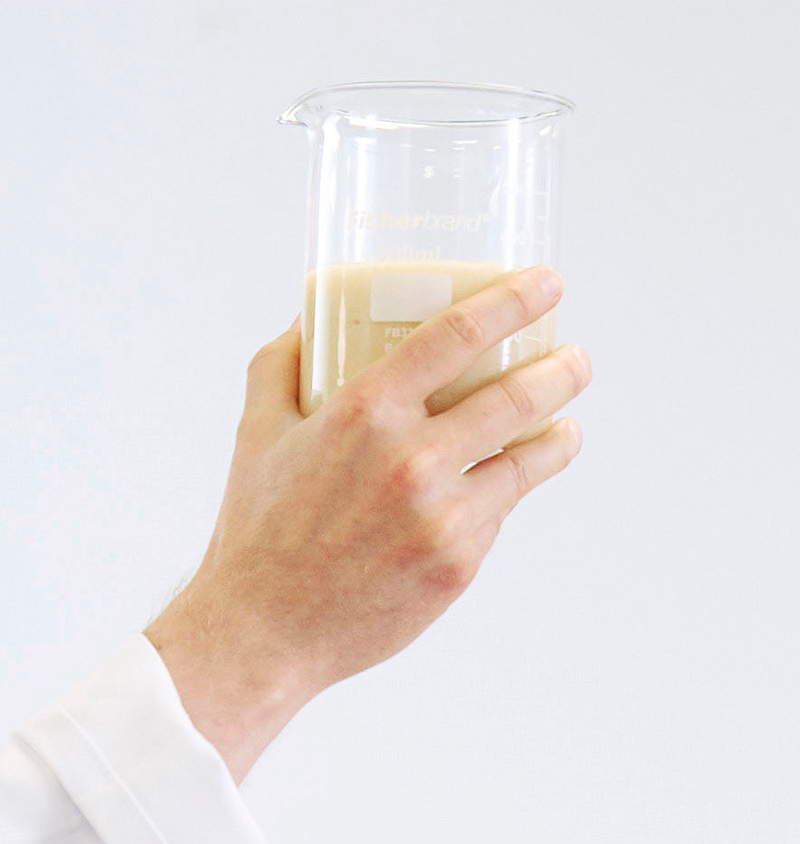
25th September 2023 Palm oil alternative is better for health and environment A new palm oil substitute called PALM-ALT has been developed by researchers at Queen Margaret University in Scotland. The plant-based ingredient is shown to be healthier, as well as 70% better for the environment than conventional palm oil and is described as "the holy grail to replace it."
Food experts at Queen Margaret University (QMU) in Edinburgh have developed a new ingredient which has the potential to replace palm oil in bakery products. The new substitute is both healthier and more environmentally friendly than palm oil, which is currently used in a vast amount of baked goods. This could be a game-changing solution for the food industry, allowing manufacturers to satisfy increasing demand for tasty, lower fat, healthier products, whilst also reducing deforestation of the world's rainforests. Palm oil is a major functional fat ingredient used in countless products such as cakes, biscuits, pastries, confectionery, ready meals, and sauces. Due to its composition, high yield and low production costs, the food industry has become increasingly dependent on palm, resulting in over-cultivation. Its high saturated fat content, which allows it to remain solid at room temperature, has proven crucial to the industrial bakery sector. However, the excessive consumption of saturated fats is associated with an increased risk of heart disease. Globally, the average person consumes about 7.7 kg (17 lb) of palm oil per year. Indonesia and Malaysia are by far the biggest producers, together accounting for 85% of the world's production. Vast areas of rainforest are being cleared to make way for palm oil plantations, threatening the habitat range of species like the orangutan and Sumatran tiger. This deforestation also releases carbon dioxide, which now accounts for an estimated 21% of total greenhouse gas emissions in these regions, according to one study. Shipping all that palm oil thousands of miles around the world results in further emissions from transport. Global demand for palm oil is forecast to exceed $75 billion by 2028, up from $62 billion in 2021. Additionally, palm oil cultivation often involves land rights disputes, displacing indigenous communities. Farming practices can exploit workers or use child labour. The monoculture nature of palm plantations also reduces biodiversity and makes ecosystems more susceptible to diseases. Finally, palm oil production can cause soil erosion and water pollution, affecting local water sources and ecosystems.
Motivated by these concerns, a team at QMU developed a replacement for palm-based fat in baked goods. Their innovation, called PALM-ALT, has several advantages that could reduce the world's dependency on conventional palm oil. The new product, which is 100% plant-based, can be sourced entirely from within the European Union and United Kingdom. It generates 70% lower emissions, contains 25% less fat, and has 88% less saturated fat, while enabling goods such as cakes and biscuits to maintain their texture, flavour, and colour. It has increased fibre and protein, too. PALM-ALT is also allergen-free, coconut-free, and has no added sugar, sweeteners, flavourings, or colourings. "We set out to develop a new ingredient that would not only be better for the environment but also healthier than palm fat and current alternatives," explained Julien Lonchamp, PhD, a lecturer in biochemistry and food sciences at QMU. "Following a preliminary study to show the potential of a novel ingredient composed of a linseed industry by-product, fibre and rapeseed oil, the QMU team secured funding from Innovate UK to demonstrate the feasibility of PALM-ALT, develop its production to factory level, and collaborate with a range of food companies to develop palm-free versions of their commercial products." "Despite efforts to develop more sustainable cultivation practices, the industry has found it difficult to identify another fat which delivers the cost benefits and physical characteristics (taste, food shelf-life and ambient storage) that palm offers, and which is not linked with health concerns. Currently there is no palm oil replacement that is sustainable, healthy, and cost-effective," said Catriona Liddle, the Head of QMU's Scottish Centre for Food Development and Innovation. "It is very satisfying to have developed a product which delivers on so many different levels for the food industry, satisfies the growing consumer market for tasty healthy foods, can support local economies and won't damage the environment." "Our team has patented the PALM-ALT composition and process and we are currently in discussions with a number of partners to implement the novel palm replacer at the industry level," added Lonchamp. "We are therefore keen to connect with food companies who are interested in replacing palm-based fat in their products using our novel ingredient." "It's the holy grail to replace palm oil and still have exactly the same end result in product – to taste the same and have the texture the same – and we've done that," said Liddle. "We've put it through some special sensory testing to see if a panel can tell the difference between our product and traditional palm shortening, and they can't."
Comments »
If you enjoyed this article, please consider sharing it:
|









